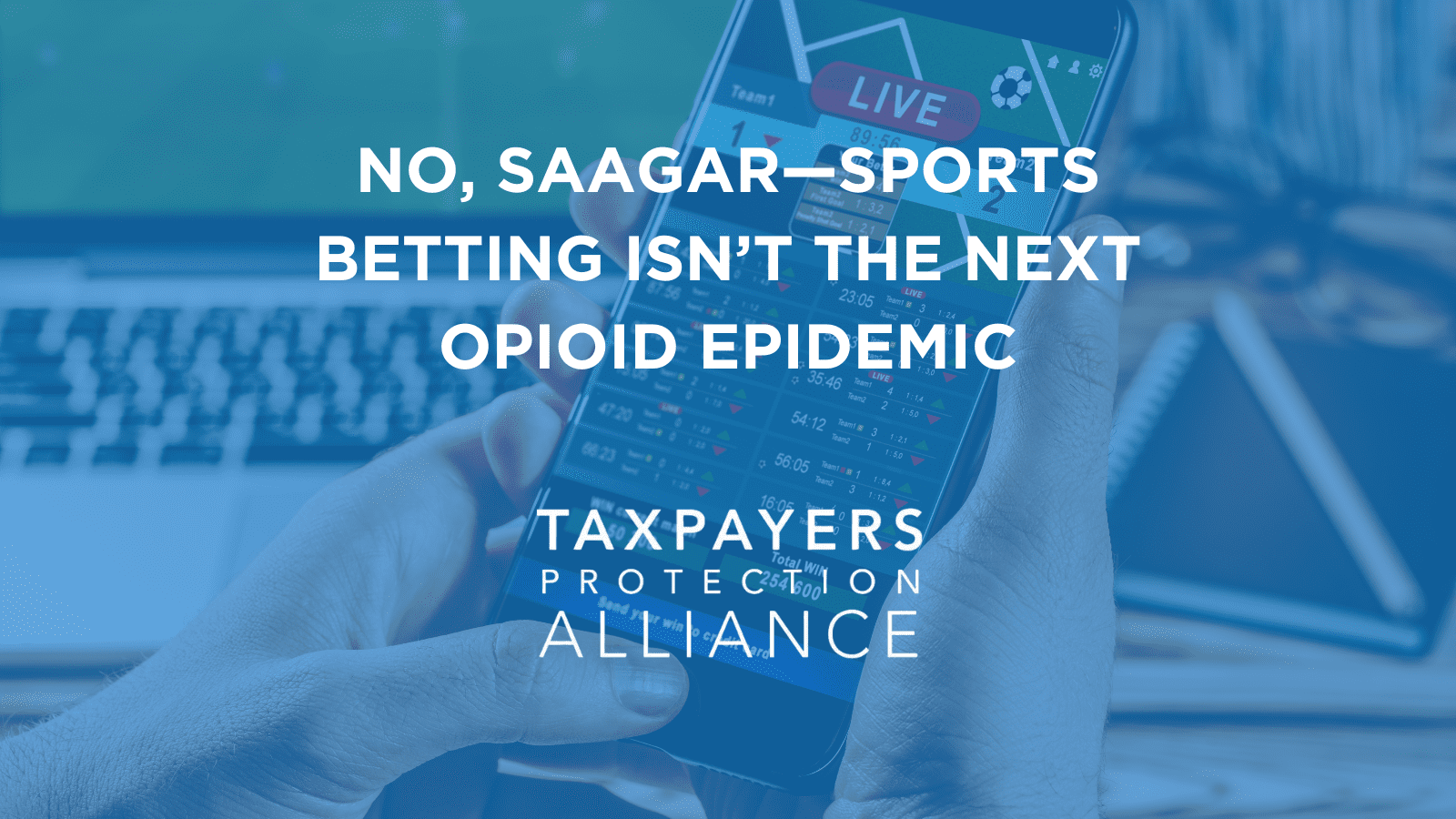
No, Saagar—Sports Betting Isn’t the Next Opioid Epidemic
Dan Savickas
July 14, 2025
Saagar Enjeti has been on a crusade against legalized sports betting. In a series of discussions on his YouTube show Breaking Points (and during a recent interview with Tucker Carlson), he railed against the industry, warning of mass addiction, financial ruin, and cultural decay. In his most recent rant he qualified by saying, “I don’t even oppose the ability to gamble,” but sadly followed that with an argument that would make the most ardent prohibitionists proud.
Let’s be clear: sports betting is not a free-for-all in the United States by any stretch of the imagination. It is regulated—and rightly so. However, Enjeti’s case rests on a mountain of exaggerations and outright misrepresentations that ignore both the data and the reality of how most Americans engage with this form of entertainment.
First, the idea that gambling lingo just burst on the scene in 2018 is patently false. “Seven years ago this was not a thing,” Enjeti claims. However, anyone who has ever listened to Bill Simmons, watched the World Series of Poker Main Event (where some of the largest payouts took place well before 2018), or heard Kenny Rogers sing “The Gambler” knows this is nonsense. Sports betting has long been a part of American culture—legal or not. The 2018 Supreme Court decision in Murphy v. NCAA simply allowed states to decide how to regulate it.
What changed was not the existence of betting. Rather, it was the transition from unregulated bookies and offshore websites to transparent, state-regulated platforms with consumer protections. That’s a step forward—not a descent into moral decay.
Enjeti’s most inflammatory claim is that “tens of millions are addicted” and that sports betting is the “next opioid epidemic.” Even taking into account the level of bluster required for a successful podcast these days, this statement is a wild distortion. According to peer-reviewed research roughly one percent of the population experiences a serious gambling disorder. That figure hasn’t budged in the years since sports betting was legalized in many states.
There is little, if any, hard evidence that legal sports betting has triggered a nationwide spike in gambling problems. Studies repeatedly show that the vast majority of people who place bets do so responsibly. Unlike the opaque underground market, regulated sportsbooks have tools in place to monitor behavior, offer self-exclusion programs, and prevent vulnerable individuals from spiraling.
Another claim pushed by Enjeti on air is that gambling advertisements tell people to “get rich with your knowledge.” That line might sound scandalous on a podcast, but it doesn’t reflect reality. In fact, the major sports betting companies in the U.S. adhere to the American Gaming Association’s Responsible Marketing Code—a set of voluntary rules that explicitly ban:
- Any message suggesting that betting guarantees wealth, success, or social status.
- Claims that sports wagering is without risk or offers “risk-free” bets.
- Promotions that encourage people to chase losses or use gambling to solve financial problems.
States also impose their own strict rules on marketing. If anything, sports betting advertising is more tightly regulated than many other legal industries—certainly more than lotteries or alcohol.
Claims that legalized sports betting leads to “mass bankruptcy” and “intimate partner violence” are irresponsible at best. These assertions are pulled from a grab bag of unpublished, non-peer-reviewed sources that don’t hold up to scrutiny. No credible studies have found statistically significant increases in domestic violence or bankruptcy attributable to sports betting legalization. As the old adage goes, “Anecdote is not the singular form of data.”
If we applied this flimsy evidentiary standard of evidence to other industries, Enjeti would be pushing for bans on credit cards, stock trading, and football itself.
One of the more conspiratorial claims is that sportsbooks exploit their top users through “VIP hosts” who push them to bet more. The truth is far more mundane—and more responsible. Regulated operators are required to train all employees, including VIP hosts, to identify and report problem gambling behavior. Communications are logged and monitored. Player protection teams review red flags and take action when necessary.
It’s also worth noting that not every VIP bettor is a problem gambler. Many players with VIP status are high-income individuals who enjoy betting as a form of entertainment, much like they might spend money on golf, concerts, or fine dining.
Despite Enjeti’s insinuations, sports betting operators cannot extend credit to customers. If a bettor doesn’t have the money, they don’t play. Accounts can be flagged for financial distress, and platforms offer tools to limit deposits, lock accounts, or seek help.
Enjeti’s argument boils down to a personal discomfort (that is likely quite well-meaning) with how others spend their free time. He admits he has no issue with gambling per se—just with the fact that it’s now easier and more popular. That may well be a legitimate argument. However, that’s not a compelling reason to curtail the freedoms of millions of Americans who engage responsibly. The way to go about curtailing behavior seen as decadent is in community engagement and accountability, not government fiat.
This vision would have government micromanaging how Americans entertain themselves. The real threat isn’t that sports fans are placing $5 bets on parlays—it’s the idea that anyone’s moral discomfort (whether justified or not) should dictate what everyone else should have the ability to do with their own time and money.
